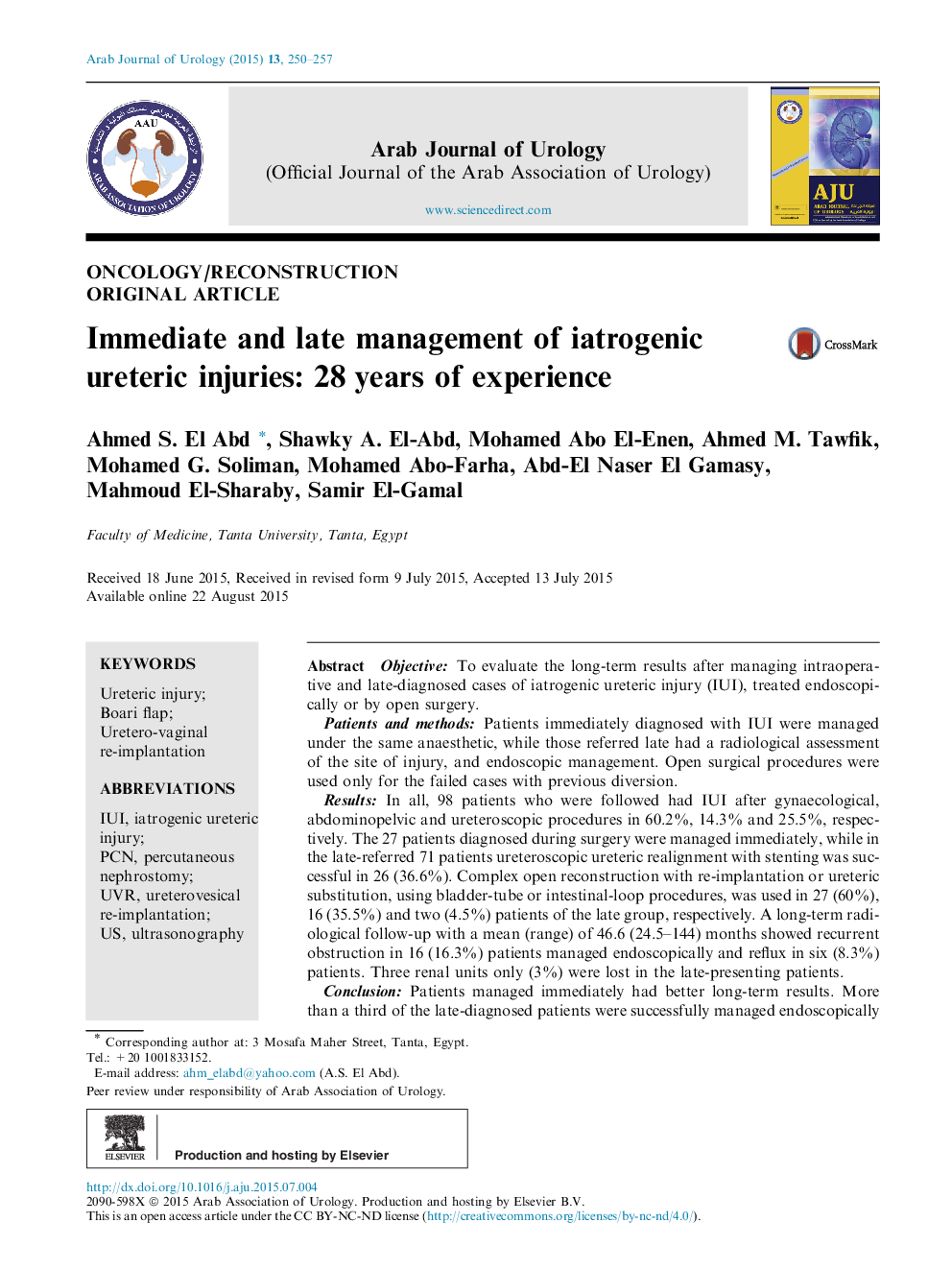| Article ID | Journal | Published Year | Pages | File Type |
|---|---|---|---|---|
| 4267945 | Arab Journal of Urology | 2015 | 8 Pages |
ObjectiveTo evaluate the long-term results after managing intraoperative and late-diagnosed cases of iatrogenic ureteric injury (IUI), treated endoscopically or by open surgery.Patients and methodsPatients immediately diagnosed with IUI were managed under the same anaesthetic, while those referred late had a radiological assessment of the site of injury, and endoscopic management. Open surgical procedures were used only for the failed cases with previous diversion.ResultsIn all, 98 patients who were followed had IUI after gynaecological, abdominopelvic and ureteroscopic procedures in 60.2%, 14.3% and 25.5%, respectively. The 27 patients diagnosed during surgery were managed immediately, while in the late-referred 71 patients ureteroscopic ureteric realignment with stenting was successful in 26 (36.6%). Complex open reconstruction with re-implantation or ureteric substitution, using bladder-tube or intestinal-loop procedures, was used in 27 (60%), 16 (35.5%) and two (4.5%) patients of the late group, respectively. A long-term radiological follow-up with a mean (range) of 46.6 (24.5–144) months showed recurrent obstruction in 16 (16.3%) patients managed endoscopically and reflux in six (8.3%) patients. Three renal units only (3%) were lost in the late-presenting patients.ConclusionPatients managed immediately had better long-term results. More than a third of the late-diagnosed patients were successfully managed endoscopically with minimal morbidity. Open reconstruction by an experienced urologist who can perform a complex substitutional procedure was mandatory to preserve renal units in the long-term.
